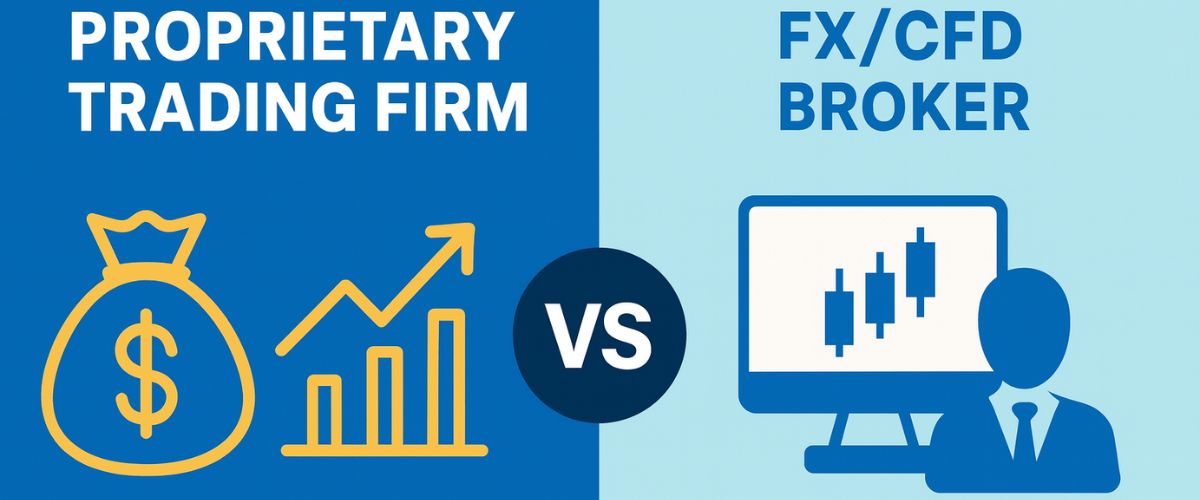The rise of proprietary trading firms has changed the way many retail traders think about accessing capital. Prop firms, once limited to institutional setups, now offer individuals the opportunity to trade with company funds in exchange for a share of the profits. In contrast, forex and CFD brokers remain the standard gateway for self-directed traders who wish to operate with their own money on leveraged accounts.
While the two models share similarities—both provide market access, leverage, and platform support—they operate on fundamentally different principles. Understanding these differences is critical for traders deciding where to commit their time and resources.
What Are Prop Firms
A propitiatory company provides traders with access to the company’s capital, not their own. In return, the trader agrees to follow strict rules covering risk exposure, drawdowns, and minimum activity. Profits generated are then split between the firm and the trader, with the trader typically retaining between 70 and 100 percent.
Prop firms usually require candidates to pass an evaluation, designed to demonstrate consistency and discipline. These may involve one-step or multi-step challenges, or in some cases, instant funding models with higher costs and stricter rules. The core appeal is clear—traders can scale into accounts worth tens or even hundreds of thousands of dollars without risking their own savings.
What Are Forex and CFD Brokers
A forex or CFD broker connects traders directly to the markets, providing access to currency pairs, commodities, indices, and other leveraged instruments. In this model, the trader deposits their own capital, which is then used as margin. The broker facilitates execution, applies spreads and commissions, and may provide additional services such as research tools or account management.
Unlike prop firms, brokers do not share in profits or losses. All risk belongs to the trader. While this structure provides maximum freedom and control, it also exposes individuals to the potential of losing their entire account balance without any institutional safety net.

Key Differences Between Prop Firms and Brokers
Why Prop Firms Are Better
Why Prop Firms Can Be Worse
Balanced Perspective
The decision between a prop firm and a broker depends on the trader’s resources, personality, and goals. Prop firms are well-suited to disciplined individuals who already have a proven strategy but lack the capital to scale. They provide an institutional-style framework with reduced personal risk.
Brokers, on the other hand, are better for those who want full freedom, long-term account ownership, and the ability to keep 100 percent of their profits. The absence of external restrictions makes them attractive to creative or unconventional traders, though at the cost of risking their own capital.
Final Thoughts: Prop Firms vs Traditional Brokers
Prop firms and traditional brokers offer fundamentally different value propositions. Prop firms are attractive for traders who want to scale quickly, preserve personal capital, and operate under structured discipline. They provide access to larger accounts and strong payout potential, but this comes at the cost of profit splits, fees, and strict rule enforcement.
Brokers remain the default for traders who prefer complete freedom and independence. While the risk to personal funds is far greater, so is the opportunity to keep all profits and operate without external oversight.
In practice, neither model is universally better. Success depends on matching the right structure to the trader’s experience, mindset, and objectives. For disciplined traders with limited capital, prop firms can serve as a stepping stone to professional-level trading. For those with sufficient resources and confidence in their own discipline, a broker may provide the most sustainable path.

